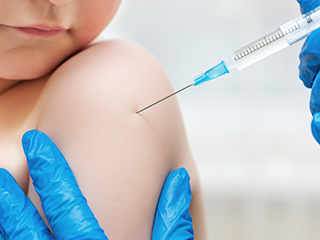
By Douglas Esser
A vaccination can immunize one person from measles, but a community needs herd immunity to prevent an outbreak.
Herd immunity is the percentage of a population that must be vaccinated to protect individuals who are not immunized. For measles, that rate needs to be 90-95%, said Dan Bustillos, an assistant professor in the University of Washington Bothell’s School of Nursing & Health Studies.
“In certain parts of Washington, the vaccination level is below what is needed to maintain herd immunity,” Bustillos said. “We are vulnerable, even though we have taken steps here to maintain a level of safety.”
The Centers for Disease Control and Prevention (CDC) declared measles eliminated in the United States in 2000. But now, the CDC has already reported more than 1,000 cases in 2019. Nearly 100 of those cases this year have been in Washington, according to the state Department of Health.
The herd modality
There are a few legitimate exemptions from having a measles, mumps and rubella (MMR) shot Bustillos said. One is an allergy to eggs, which are used to make the vaccine.
A bigger reason for MMR vaccination rates falling is the debunked, yet persistent, belief that the shot risks autism in children, he said, noting that trust in vaccinations has become a public debate with some on both sides taking inflexible positions.
Bustillos engages in the issue as a health ethics expert who researches moral, legal and philosophical issues surrounding medicine and public health. He has been teaching health policy law and vaccination policy courses at UW Bothell since 2015. He previously had roles in vaccination policymaking in Texas and Missouri.

Because it was “eliminated” for decades in the United States, measles is now underestimated as a threat.
“Measles is nothing to laugh at,” Bustillos said. “Measles is one of the most terrifyingly virulent diseases known. It is among the most infectious and fast-spreading viruses out there.”
Taking measles seriously
For people who haven’t been vaccinated, including infants and people with compromised immune systems as well as people for whom a vaccination wasn’t 100% effective, measles can cause a debilitating illness and even death, Bustillos said.
The University of Washington requires first-time students to show proof of immunization. Students also can prevent spreading measles by handwashing and staying home if they have symptoms.
Bustillos is a proponent of vaccinations such as the MMR. He also recommends that students be vaccinated against the human papillomavirus (HPV), a sexually transmitted infection that can lead to genital warts and several types of cancer. It’s another example of a safe vaccination with big benefits, he said.
Risks versus benefits
With his experience, Bustillos is wary of being drawn into the debate between advocates and the anti-vaccine side, especially on social media.
Trust is low, and skepticism is high with accusations of cover-ups and cherry-picking facts, he said.
It’s a paradox of the debate that better-off, well-educated people — those who would be expected to follow research-based science — often cling to the discredited belief that the (MMR) immunization causes autism.
Advocates should concede immunizations’ small risk, and opponents should recognize the larger benefit of preventing diseases, Bustillos advises. Lower the rhetoric and recognize the complexities of vaccinations, he says.
This might be especially timely advice during National Immunization Awareness Month in August.
“Although they are not an unmitigated good, they are probably one of the most important medical advances in modern history,” Bustillos said. “The millions that they have saved far outweigh the small number that have been harmed.
“The reality in my opinion is that we do a pretty good job of choosing the risk-to-benefit ratio.”



